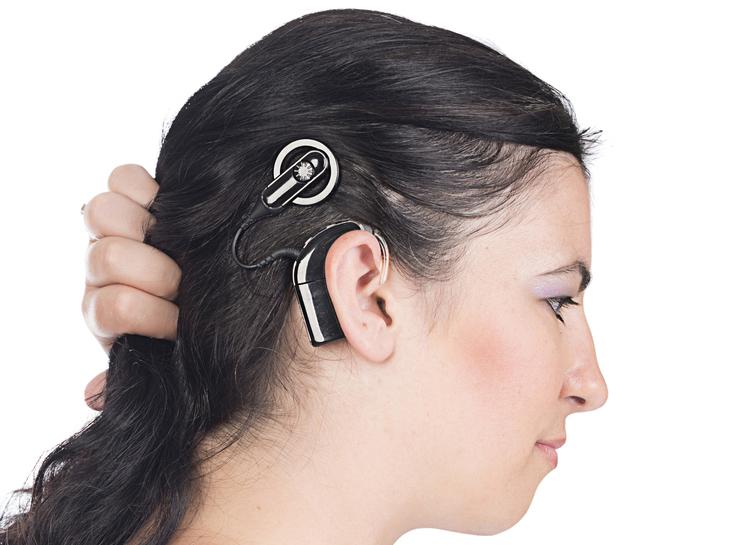Many of you may ask yourself what it’s like to be hearing impaired. Other questions you might ask are: “What is that thing in your ear?” “Can you hear me?”
Well, from my point of view, I find those questions strange at times because I am hearing-impaired. To tell you the truth, because I was born hearing-impaired, I have never known what it’s like to have normal hearing. So, while I can tell you what it’s like to be hearing-impaired, I can’t tell you how that’s different from what you experience as a hearing person. Many people who are hearing-impaired are just born with it, like I was, and others develop it over time.
But let me see if I can answer some of your questions!
What are those things in your ears?
Many ask this question. Well, it depends! Some of us wear hearing aids and some of us wear cochlear implants. Both help us to hear better.
On the left is a hearing aid. They come in many different shapes, sizes and colors. Hearing aids can’t give you normal hearing, but they can improve your hearing by amplifying soft sounds, helping you hear sounds that you have trouble hearing.
On the right is a cochlear implant. It requires surgery and is only for people with severe to profound hearing loss who receive little to no benefit from hearing aids. For more information on cochlear implants, you can go to https://www.youtube.com/watch?v=p4C5O_OgR0s to see a video on how cochlear implants work.
What is that thing that you’re giving to the teacher?
The “thing” that we are giving to the teachers is called either an Assistive Listening System (ALS), Assistive Listening Device (ALD), or Hearing Assistive Technology (HAT). The point of using these systems is so that we can better hear people talking from a distance and better hear in noise. No matter what you call it, every ALS has two parts: a transmitter (that “thing” I’m giving to the teacher) and a receiver that connects to the hearing aid or the cochlear implant. The teacher wears the transmitter and the microphone amplifies his or her voice and brings the teacher’s voice straight to the hearing-impaired person’s ear. It makes the teacher’s voice more clear and easier to understand.
How do deaf people communicate?
Well, it depends! Some deaf and hard-of-hearing people can talk normally, but sometimes have trouble with some words because we can’t hear those sounds. Other deaf and hard-of-hearing people might or might not use their voice because they can’t hear themselves talk and their speech is not intelligible. But, they can still communicate with sign language. Sign language is its own language with its own grammar. American Sign Language or ASL is used in the United States. Many people don’t realize that sign language is different in every country. There is British Sign Language, French Sign Language, and so on.
What other things should I know about deaf or hard of hearing people?
Here are some tips on how to communicate better with deaf and hard-of-hearing people:
- Get the deaf person’s attention before speaking.
- Key the deaf person in to the topic of discussion.
- Speak slowly and clearly, but do not yell, exaggerate, or overpronounce.
- Look directly at the deaf person when speaking.
- Do not place anything in your mouth when speaking.
- Maintain eye contact with the deaf person.
- Avoid standing in front of a light source, such as a window or bright light.
- First repeat, then try to rephrase a thought if you have problems being understood, rather than repeating the same words again.
For more information on communicating with deaf and hard-of-hearing people you can go to:
http://www.scha.org/files/documents/tips_for_communicating_with_deaf_and_hard.pdf
For more information about deafness and hearing loss go to: http://kidshealth.org/teen/diseases_conditions/sight/hearing_impairment.html#
If you ever have any other questions or if you’re wondering about something else connected to deaf and hard-of-hearing people, please feel free to ask me. Please don’t judge, tease, or start rumors if you don’t know what the real story is. That’s why it’s always better to ask the person who’s experiencing it face to face. Like me!
